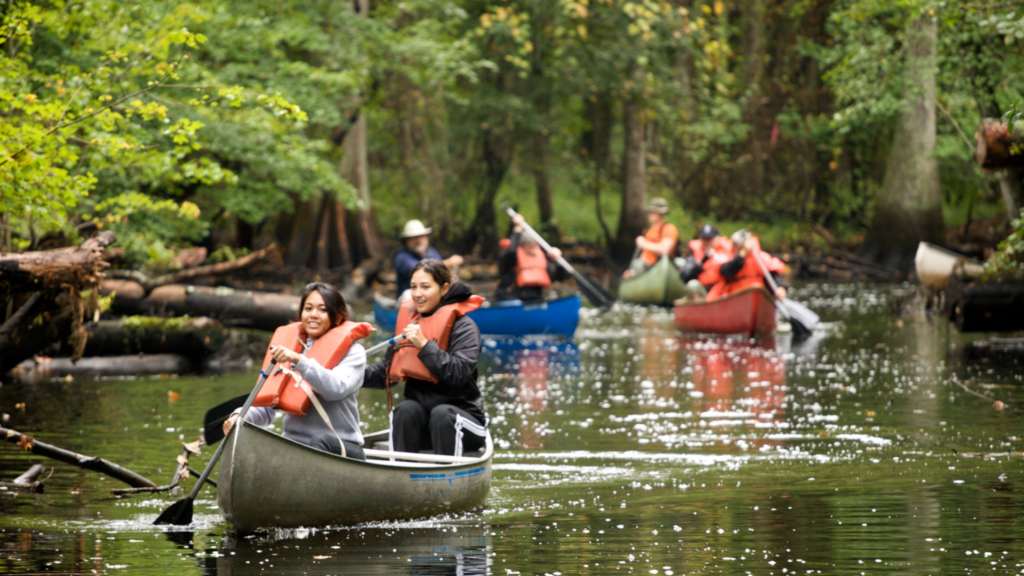When I started out in catechumenate ministry, I worried I wouldn’t cover all the necessary teachings for seekers to become good Catholics. I had a literal checklist of doctrines to ensure I didn’t miss anything. What I had to learn is what Pope Benedict XVI later said about faith: “Being Christian is not the result of an ethical choice or a lofty idea, but the encounter with an event, a person, which gives life a new horizon and a decisive direction” (Encyclical Letter on Christian Love, 2005, 1)
What I discovered in those first years of my ministry was that seekers aren’t looking for doctrines. They’re seeking a relationship with Jesus, who knows their name, stands by them daily, protecting, healing, and freeing them from whatever holds them down or holds them back.
I also realized that without giving seekers a life-changing encounter with Jesus Christ, an encounter leading to communion and intimacy with the Savior, they might become Catholic, but they often didn’t become disciples.
Pope Francis tells us that to facilitate such a transformational encounter, we must practice the “‘art of accompaniment’ which teaches us to remove our sandals before the sacred ground of the other (cf. Ex 3:5). The pace of this accompaniment must be steady and reassuring, reflecting our closeness and our compassionate gaze which also heals, liberates, and encourages growth in the Christian life” (Joy of the Gospel, 169).
Jesus as the model accompanist
One way to understand the “art of accompaniment” is to recall the story of the disciples on the road to Emmaus. Jesus is our model as the one who accompanies. The disciples are those seeking something deeper—perhaps freedom from fear or confusion.
You may think you’re not Jesus and won’t be able to accompany seekers in ways that lead them to an encounter with Jesus offering freedom or healing. You’re not alone. No one is born a spiritual accompanist. You become one through the gifts of the Holy Spirit and by practicing holy listening.
Pope Francis said:
We need to practice the art of listening, which is more than simply hearing. Listening, in communication, is an openness of heart which makes possible that closeness without which genuine spiritual encounter cannot occur.”
– Joy of the Gospel, 171
An interesting aspect of accompaniment is that while we aim to lead others closer to God, the Directory for Catechesis says we walk beside others to listen to them “without establishing the route in advance” (135 c).
This balancing act requires four key skills, all of which Jesus exemplified in his encounter with the disciples on the road to Emmaus:
1. Listening
Jesus listened attentively to the disciples’ concerns and confusion, allowing them to express their disappointment and doubts. He heard not just their words, but the pain and disillusionment behind them.
2. Questioning
He asked probing questions like “What are you discussing together as you walk along?” (Luke 24:17), inviting the disciples to articulate their thoughts and feelings.
No one is born a spiritual accompanist. You become one through the gifts of the Holy Spirit and by practicing holy listening.
3. Discernment
Jesus recognized where the disciples were spiritually and emotionally, discerning their need for understanding and hope. He knew when to explain scriptures and when to simply walk alongside them.
4. Flexibility
Rather than immediately revealing his identity, Jesus adapted his approach to the disciples’ state of mind. He walked with them, dined with them, and allowed understanding to dawn on them in the breaking of the bread.
By developing these abilities, we can move beyond checklists and create space for authentic encounters with Christ, much like the one experienced by those disciples on the road to Emmaus.
Can you help me out?
I’d love to know how this exploration of spiritual accompaniment resonates with you. Has your catechumenate experience been more checklist-driven or relationship-focused? Which of the four skills—listening, questioning, discernment, or flexibility—do you find most challenging or rewarding in your ministry? Perhaps you have a story of how practicing these skills has impacted a seeker’s journey.
Share a word, phrase, or brief reflection in the comments below. Your insights can help all of us grow in our ability to accompany others on the path of faith. Thanks for being part of this ongoing conversion in how we minister in the catechumenate!



















Thanks for the article on accompanying.
It is a strong reminder about making time in each encounter with the seeker to be flexible with our “lesson plan” to listen, question, and to discern with them, not for them. By praying for the wisdom of the Holy Spirit and trusting in the Lord that in His perfect timing and places, He knows the readiness and openness of our hearts to receive and how best to experience His Love.
I feel the message in this article is very good to share with sponsors.
Thanks you.
Hi Bernie. Thanks so much for sharing your thoughts on this. Blessings on your ministry.
Been working with guy since feb. Have yet to discuss beliefs, scripture, liturgy. I learned your well articulated article the hard way. It works perfectly.
Hi Tom. Thank you for your input. I pray your patience with your seeker will bear fruit soon. Blessings.